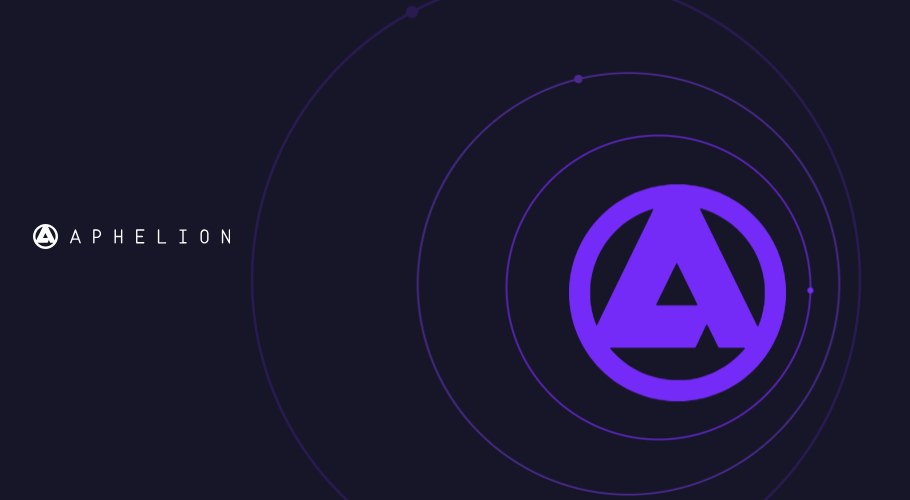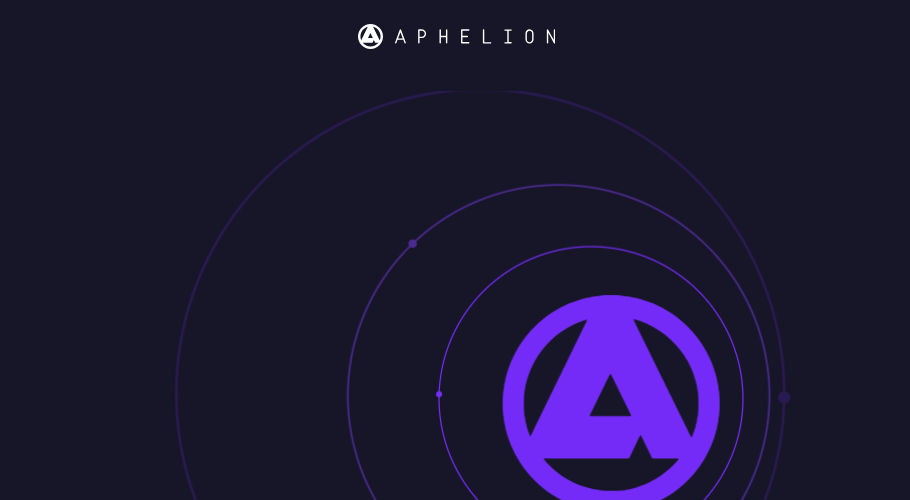Aphelion, a decentralized exchange based on the NEO blockchain, which launched earlier this year reported that they have made the business decision to disable mainnet trading. All market pairs on the Aphelion DEX were disabled on November 21, 2018. Users funds and orders were canceled and refunded starting Friday, November 23rd, 2018. Also, any users with APH tokens were told to start claiming those assets back to their wallet. The team says they are are not planning on disabling that feature any time soon and if they do, it will also automatically process APH claims on the user’s behalf.
To date since release on October 10th, the DEX has collected just under 3500 APH in fees – 80% of which have been or will be redistributed to the community. This leaves roughly 700 APH in organization collected fees (around $20 at current rates). The Aphelion team says it has not touched those and they will stay on the contract until the DEX is reinstated or they will burn them; meaning no profit has been made from DEX operation. Further, with markets deactivated there was orphaned NEO since it’s not divisible, thus the team manually airdropped the NEO equivalent in GAS at its own expense to those that had fractions of NEO on the contract.
Why Pause
“It’s been a perfect storm of bad news: new SEC rulings, disastrous market conditions, NEO tech challenges and diminishing cash flow. First, recent SEC action against EtherDelta sets a new precedent that directly impacts our trading platform. In short, the SEC ruled that non-custodial cryptocurrency exchanges allowing users to trade are firmly within their scope. Previously, we’d been advised that we were not in their regulatory purview. Since that action, and based on expert advice from multiple leading attorney firms specializing in compliance, we fully expect the SEC to continue to target all crypto exchanges (decentralized or not). And so, we have been advised to cease trading activities immediately and identify a path towards compliance. The SEC has not contacted us and by proactively disabling trading, after only being live for a few short weeks, we don’t expect any action. The decision is not related to any specific SEC action towards us, nor is it related to any recent listings on the Aphelion DEX; it is a solely a direct consequence of the EtherDelta action.”
Path Towards Compliance
The Aphelion team says that it path forward starts with obtaining a broker-dealer license through registering as a national exchange or partnering with an organization that has one. Another option is to enable full KYC-AML. They could also partner with another project that is nearer to compliance and integrate the Aphelion tech or they could create an additional utility for the token and wallet to create value for it in the interim. Note that the SEC through it’s newly announced FinHub platform is working towards releasing additional guidelines and engaging with projects like Aphelion’s. Either way, the team will continue to analyze and monitor all paths towards compliance.
Current Financial Situation, Tech Challenges & Market Conditions
On top of the regulatory news, the market and recurring operating costs have provided additional challenges. Aphelion held a fairly small ICO with limited funds and they report the need to cut costs to stay operational. In particular, NEO (the blockchain which Aphelion operates) has been hit hard with tech challenges and a falling token value ($195 to $9) which has directly impacted cash flow and development. Mr. Holtz reports that they prudently sold some NEO shortly after their ICO, but the NEO they have had to sell over the last few quarters to continue development has crippled cash flow.
Next, Aphelion had to pull their development team off the DEX to solve for limitations and challenges of the NEO blockchain that would cripple the wallet and DEX. Those challenges came at a direct cost, cutting into time and budget.
Additionally, with Aphelion operating exclusively on NEO based tokens put the project on an island of trading potential and there is not enough volume across the ecosystem to support a self-sustained model at this point. Aphelion was the second ICO on NEO, and at the time, the team forecasted on a different market outcome, higher trading volume and also had planned to use chunks of organization tokens and APH collected fees to fund the next stages of development. The team will stay operational but not develop towards cross-chain functionality until they find a compliance solution at which point it can evaluate budget and scope.
Future Plans
The Aphelion wallet will continue to stay live across desktop, Android, iOS, and web and will continue to be maintained moving forward. The team also plans to keep the DEX fully functional on testnet and release mobile DEX on testnet and continue its development so users can continue to see and interact with the DEX.
Holtz added, “In closing, we are grateful for all those that have supported Aphelion and we are hopeful that with a market turn, targeted partnerships, and new regulatory framework that we will be able to activate the DEX again in a better, and stronger way. Aphelion has mostly been an up-against-all-odds, scrappy, underdog, bootstrapping and persevering team and we will continue in that tradition while we deal with this setback. Aphelion has not sold any of the 21 million APH organization tokens. Also, our decision to pause the DEX came only this week and has remained 100% confidential preventing any unethical trading practices and the order history reflects that.“






















